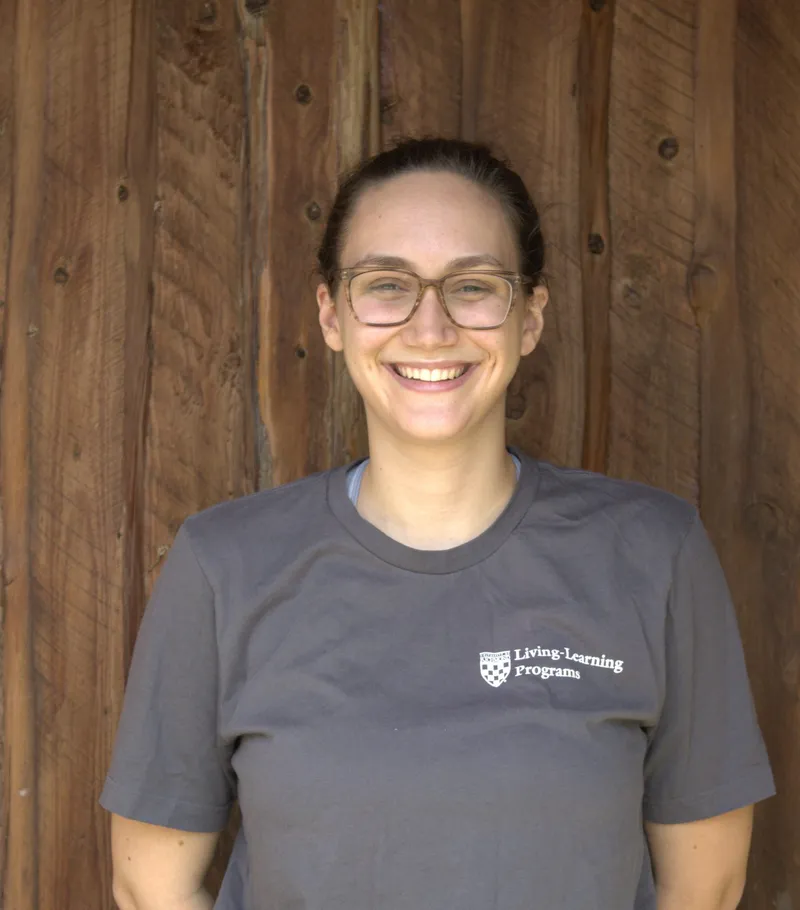
By: Elspeth Collard
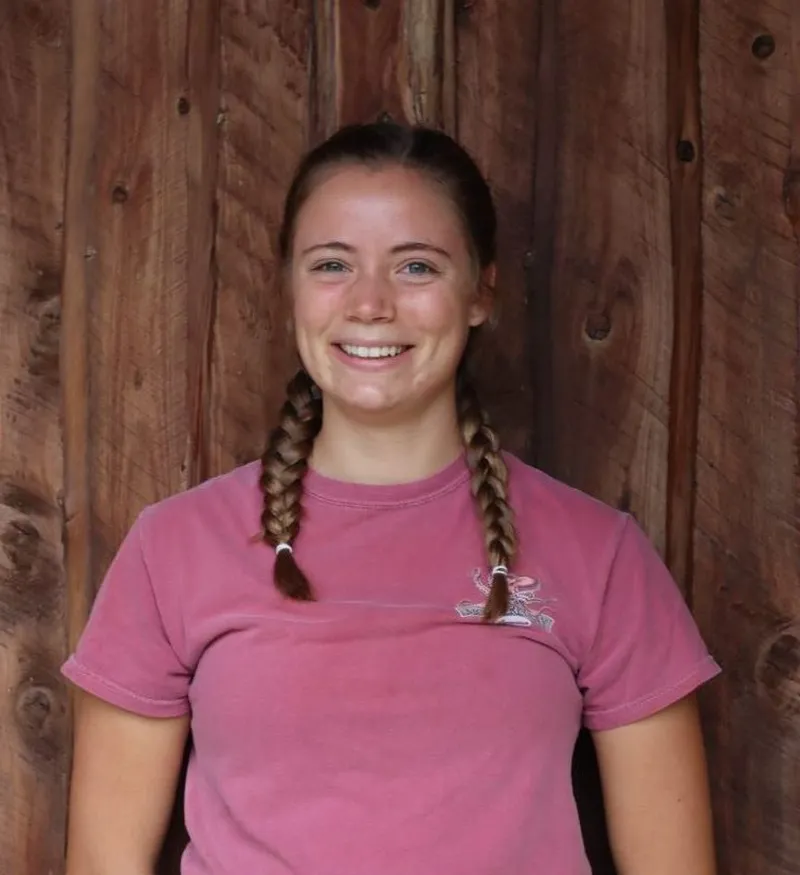
By: Joy Oakes
Alumni Return to Kenya for Human-Wildlife Conflict Project
Hello! We are Elspeth Collard and Joy Oakes, alumni of the Fall 2021 SFS Kenya program. We were awarded a grant through Davis Projects for Peace to implement a project mitigating human-wildlife conflict using the experience and knowledge we gained while we were abroad. In collaboration with the Born Free Foundation’s Amboseli Team, we’ve installed 178 flashing, solar-powered predator deterrent lights at 19 homesteads (bomas) in a village bordering Amboseli National Park.
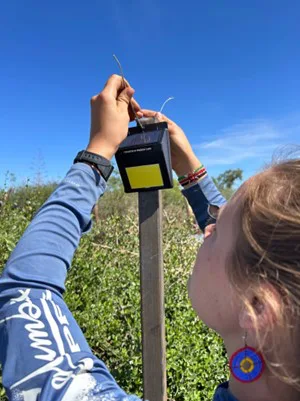
Joy installing a light on a boma in Olgulului GR. Photo credit: Elspeth Collard
Our motivation for this project comes from the impactful experiences we had while studying abroad with the SFS Kenya program. During our study abroad we learned about the issue of human-wildlife conflict (HWC) from a scientific, ecological perspective as well as from a local, human perspective. As we interviewed local people, we heard repeatedly about how detrimental this issue was to Maasai pastoralist livelihoods. This was the primary inspiration for our project: implementing a solution that would contribute to the need for coexistence.
Olgulului Group Ranch, the setting of our project, is a rural area in the Amboseli Ecosystem that borders the unfenced Amboseli National Park. The park’s proximity to local Maasai communities creates conflict with wildlife as they disperse from the park. Maasai bomas (compounds that contain both resident shelters and livestock pens) are frequently attacked by predators (e.g. hyenas and lions), usually at night, to prey on the livestock held inside. A week before our project began, 10 lions that had ventured out of Amboseli National Park and preyed on the livestock of multiple local homesteads were killed by local pastoralists in the span of a week (Africa News, 2023; Big Life, 2023). This incident is indicative of the continually mounting tensions between humans and wildlife in the area. Current compensation programs for HWC-related damages and boma fencing programs, while beneficial in addressing HWC, are costly.
This project was designed as a pilot study to determine the effectiveness of a low-cost strategy, predator-deterrent lights, in preventing predator attacks on Maasai bomas in Olgulului Group Ranch (in conjunction with well-maintained natural fencing). The PDLs will be studied over an extended period of time and if they are found to be effective, we have provided further information to community members and local organizations, making it possible to expand the installation of PDLs and protect more bomas from predator attacks.
The idea of installing solar-powered, flashing lights to mitigate predator attacks began in 2014 with a then 11-year-old Maasai boy, Richard Turere. Predator deterrent lights (PDLs) have now been installed across Kenya, Tanzania, and Zambia. As the lights have gained popularity, they have been continually enhanced and studied. A 5-month study of the lights in Kimana and Olgulului Group Ranches found that there was a significantly lower number of predator attacks and livestock deaths for bomas that had PDLs in comparison to prior to light installment and control bomas, respectively (Okema, 2018).
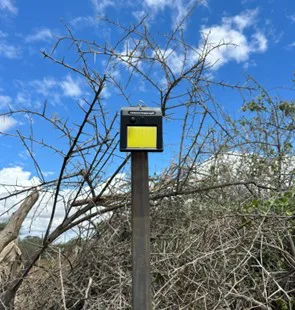
Close-up of installed PDL, designed and manufactured by Coexistech Ltd. Photo credit: Elspeth Collard
For this project we collaborated with the local Amboseli branch of the nongovernmental organization, Born Free, which specializes in human-wildlife conflict mitigation. We first engaged with them while studying abroad with SFS in 2021. Based on their familiarity with predation incidence and mitigation strategies in Amboseli, Born Free helped us in selecting a village that had not benefited from other human-wildlife conflict mitigation strategies, such as a compensation program or reinforced fencing, but borders the unfenced Amboseli National Park and experiences high levels of predation. In collaboration with Born Free’s Amboseli Community Engagement Officer, Stephen Melubo, we held a community meeting in the selected village to communicate the goals of the project, introduce the lights and how they function, and facilitate the selection of which homesteads would receive lights. During this meeting, the community discussed which homesteads had the highest incidences of predation and decided which ones would have lights installed. These decisions were also cross referenced with Born Free’s predator attack incidence data for homesteads in the area.
Then, over the course of three days, we installed 178 lights at 19 homesteads. A questionnaire was administered at each participating homestead as well as control bomas (that did not have lights installed) to collect data related to the homestead’s demographics, location, socioeconomic status, and predation incidence. When asked about the status of their living conditions, 100% of respondents reported worsened living conditions, with 100% pointing to livestock loss as a cause of the decrease in living conditions and 77% also selecting wildlife conflict as a cause. 92% of respondents reported their number of livestock decreasing in the last year.
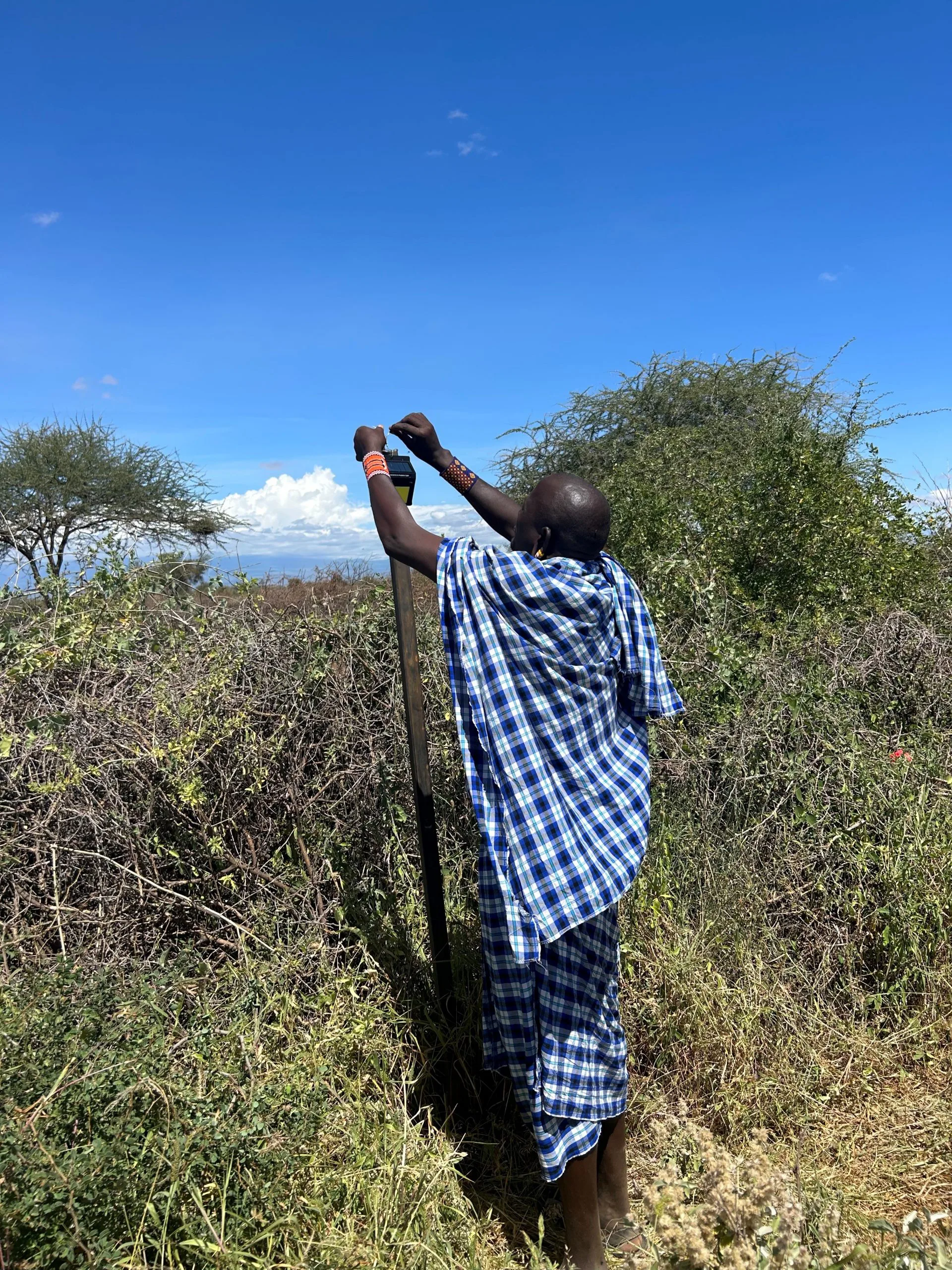
Boma owner with PDL. Photo credit: Elspeth Collard
After installation, there are plans for a wrap-up community meeting to provide further PDL training and to get feedback about the project from the community. At this meeting, energy-saving stoves and plaques with Born Free’s contact information were also given to each participating homestead (including controls).
All participating homesteads (including controls) will have a follow up questionnaire conducted by a Born Free representative every 6 months for 3 years (June 2023 – 2026) to assess the effectiveness and impact of the lights. Born Free has expressed interest expand the PDL program if the lights prove to be effective in Amboseli.
Contact
Elspeth Collard el************@***il.com
Joy Oakes jo****@*************ga.edu
Related Posts
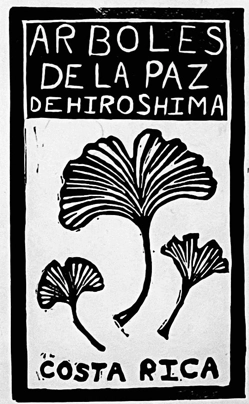
Trees of Peace from Hiroshima: A Time Traveler and Emissary of Hope
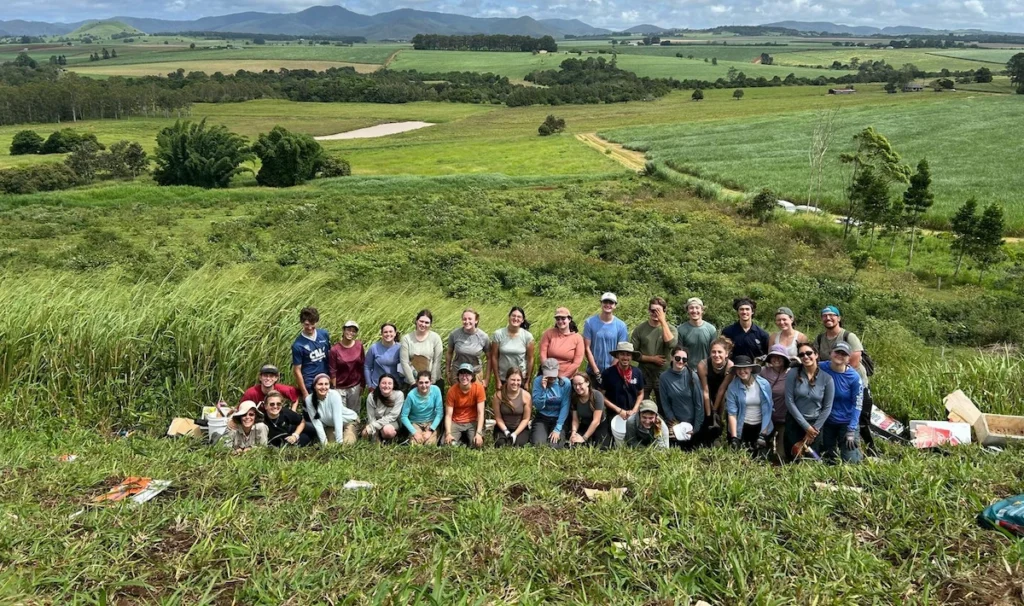
Cinder Cone Chronicles: Lessons from Drought, Data, and Determination
